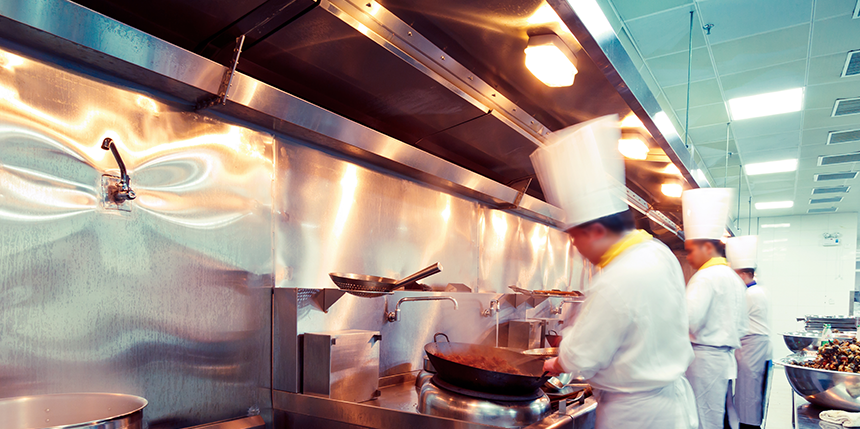Sustainable school buildings - how to reduce the risks
Risks associated with modern sustainable school buildings and ways you can reduce them.
Fires in kitchen and cooking areas are very common, often resulting in extensive damage to the premises and disruption to the business.

Even a small fire is likely to cause damage. This could mean the temporary closure of the premises while a mobile kitchen is sourced or alternative arrangements made.
The most common causes of commercial kitchen fires include:
Below are some other ways you can use to reduce the risk of a kitchen fire.
A build-up of fat and grease deposits within extraction canopy systems, filters and ducting pipework poses a significant fire risk.
It is essential that the whole extraction system is regularly cleaned. Cleaning should be undertaken by a contractor certificated by the Loss Prevention Certification Board LPS2084 or by the BESCA Vent Hygiene Elite Scheme.
The Building Engineering Services Association TR19 'Guide to Good Practice - Internal Cleanliness of Ventilation Systems' should be used for guidance.
Installing a kitchen hood fire suppression system can also reduce the impact of kitchen fires.
Kitchen hood fire suppression systems are installed in commercial catering facilities across a wide variety of premises.
Ideally, all extraction canopies (including hoods, ductwork, plenums and filters) covering cooking ranges should be fitted with fixed fire suppression systems complying with an appropriate standard, for example, LPS 1223 or UL300.
Such systems should be installed by a company who are BAFE SP206 Scheme accredited, or by a contractor approved by the manufacturer.
You can find more detailed guidance in the document list below.
It goes without saying that equipment that is serviced and maintained regularly is less likely to go wrong and cause problems. Therefore it is essential that all kitchen equipment is subject to planned inspection and servicing in line with the manufacturer’s instructions by a competent contractor/person. This should include safety devices such as thermostats, temperature control devices, flame supervision devices etc.